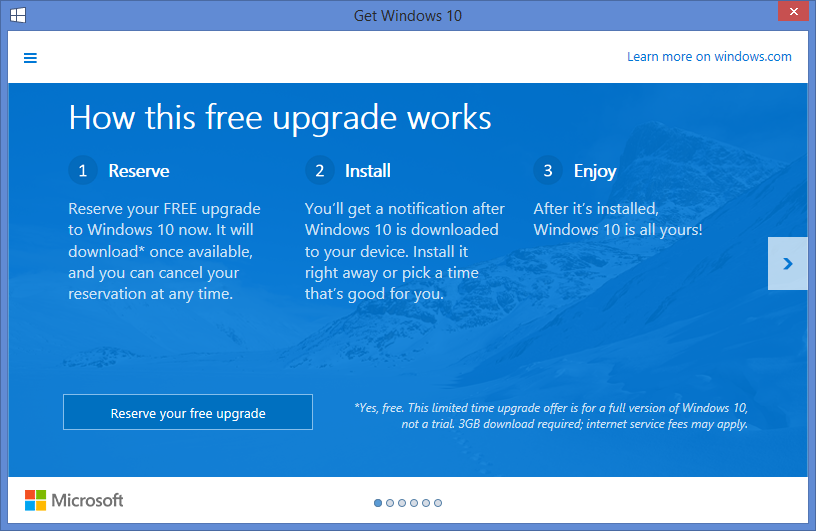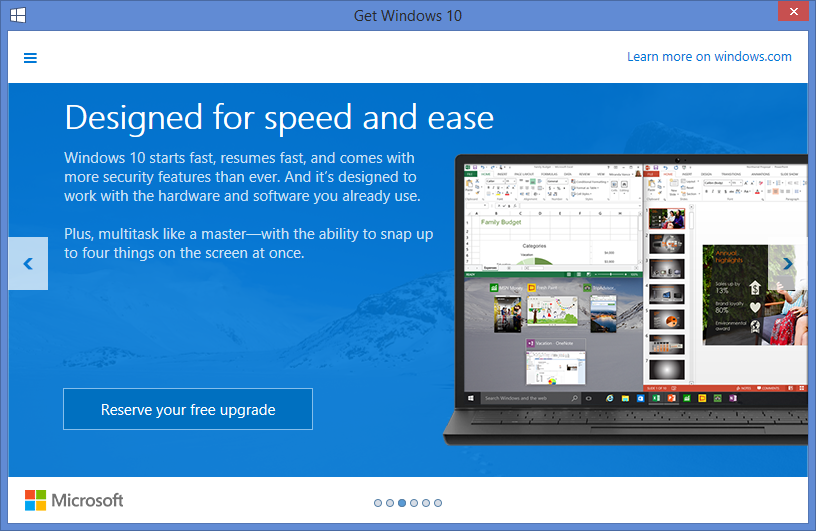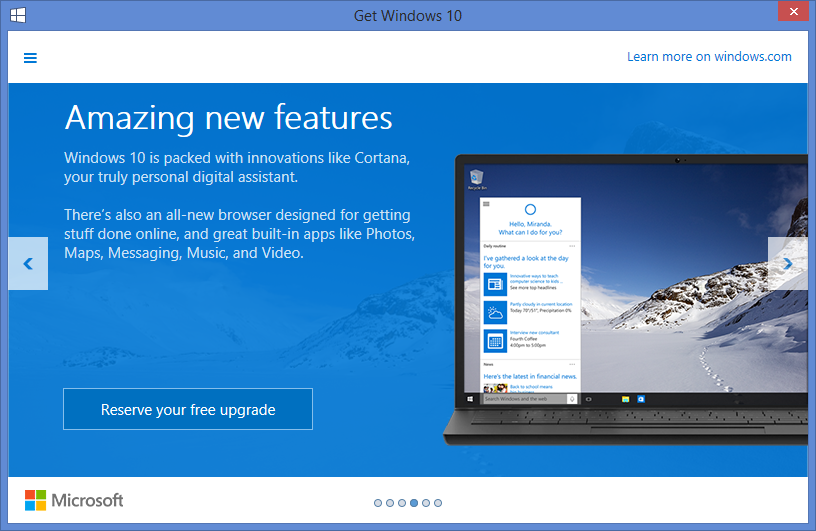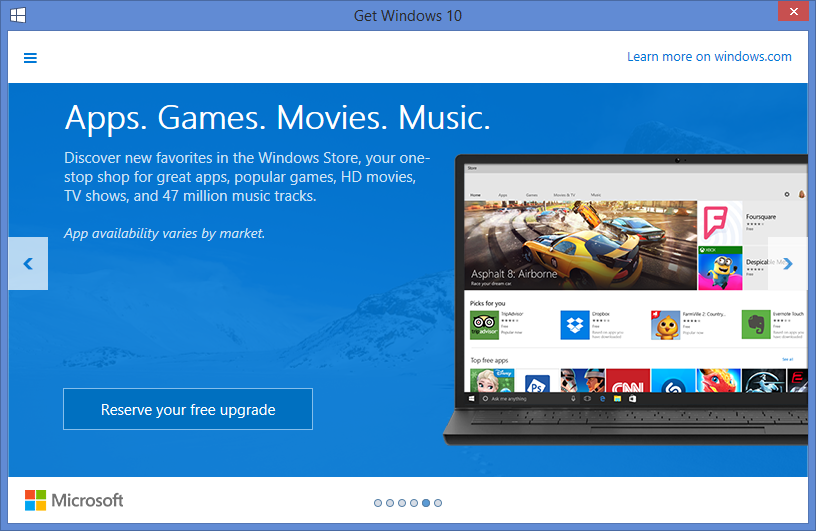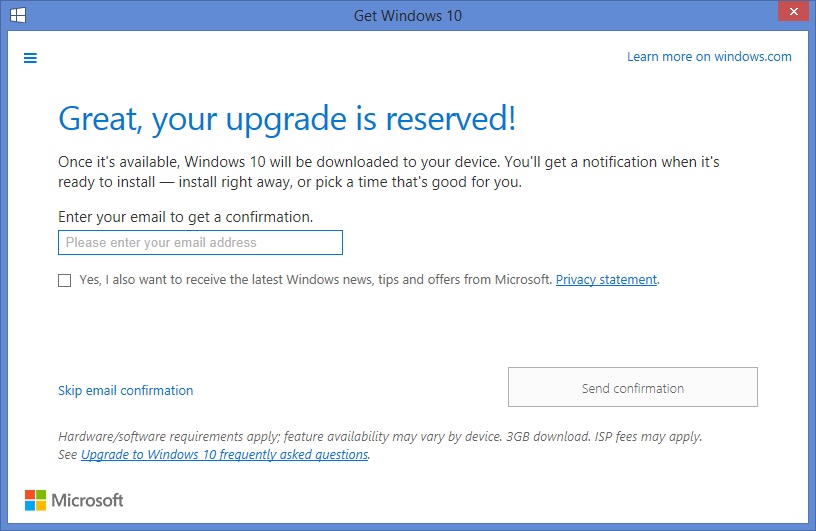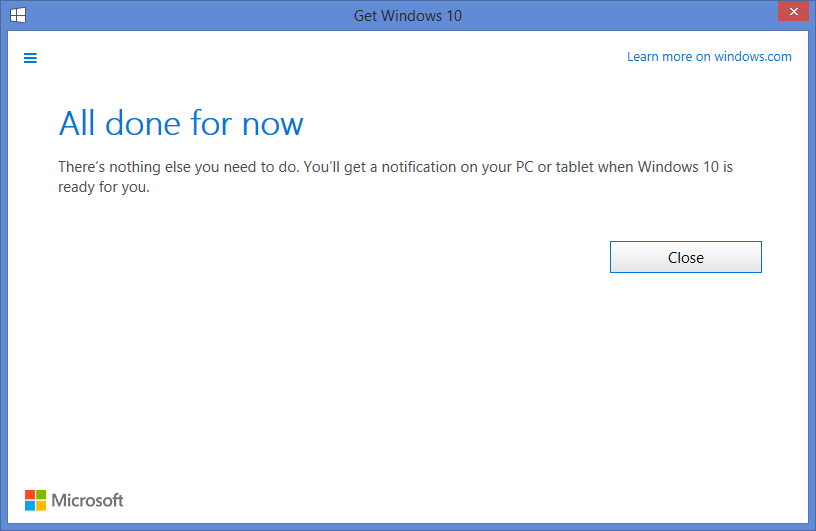In January, we learned that for one year, Microsoft would offer free Windows 10 upgrades to those running Windows 7, Windows 8.1, and Windows Phone 8.1. While Windows 10 for PCs isn’t launching until July 29 and Windows 10 for phones is coming after that, we’re now seeing the first indications of how the free upgrade process will work.
Reddit user p4block spotted the new “Get Windows 10” message on his Windows 8 computer earlier today. Other users, including those running Windows 7, confirmed they received the message too (shown below).
The update behind this notification is KB3035583, which also happens to be responsible for the actual Windows 10 upgrade process. While KB3035583 was originally released in March, it was first offered as an Optional update, but more recently switched to Recommended (meaning users would automatically receive it if they have Automatic Updates turned on).
If you got this prompt (it appears as a Start button icon in the notification area on your taskbar) and want to get rid of it, this is the update you’ll want to uninstall. Alternatively, if you didn’t get a prompt but want to reserve and install your free Windows 10 upgrade, make sure you have this update installed.
In case you can’t see the image above, the explanation for “How this free upgrade works” is quite straightforward:
- Reserve your FREE upgrade to Windows 10 now. It will download* once available, and you can cancel your reservation at any time.
- You’ll get a notification after Windows 10 is downloaded to your device. Install it right away or pick a time that’s good for you.
- After it’s installed, Windows 10 is all yours!
The asterisk at the bottom explains that yes, the upgrade is free, that it’s not a trial, and that it is a full version of Windows 10. Requirements include 3GB for the download and Internet service fees in case your ISP charges you for using too much bandwidth.
KB3035583 requires Windows 7 SP1 or Windows 8.1 to function correctly. We installed the update on a Windows 8 computer, but because it’s not updated to Windows 8.1, we didn’t get asked to reserve our Windows 10 upgrade. We grabbed another computer and forced the prompt (see instructions in the update at the bottom of this article).
The first screenshot above is just the first slide. The next four slides are all about selling Windows 10 to the user:
After all that, you’re asked again to reserve your copy:
You can optionally add your email address to be notified again:
Of course, Windows 10 isn’t ready yet, so now it’s back to waiting.
You may get a prompt even if you have the update installed. Other requirements, such as how up-to-date your Windows version is, your locale, language, and so on can affect whether you’re asked to reserve your copy. Furthermore, Microsoft is likely rolling these prompts out gradually as opposed to all at once, so sit tight if you’ve tried everything but don’t see it yet.
Still, the fact that Microsoft is turning on this notification now shows just how eager the company is to get users onto the latest version of its operating system, OEM pricing for which leaked just yesterday. Offering users the option to reserve digital copies in advance, which really don’t have to be reserved because they’re digital, will help Microsoft determine how much resources to allocate on the big day as well as how much it still needs to promote the offer.
A lot is riding on this upgrade process. After all, in two to three years, Microsoft hopes to have 1 billion devices running Windows 10.
Update: Reddit user FearGX_ explained that you can force the update to do its thing. We’ve reformatted his instructions below.
- Open the Control Panel, choose Administrative Tools, and then fire up the Task Scheduler.
- Expand Task Scheduler Library, then Microsoft, then Windows, and finally scroll down to expand Setup.
- Click the folder GWXTriggers and on the far right hit Run.
Again, this will only work if you’re running a legitimate copy of Windows 7 SP1 or Windows 8.1, have KB3035583 installed, and have all the latest updates.
For more information, check out Everything you need to know about upgrading to Windows 10.

